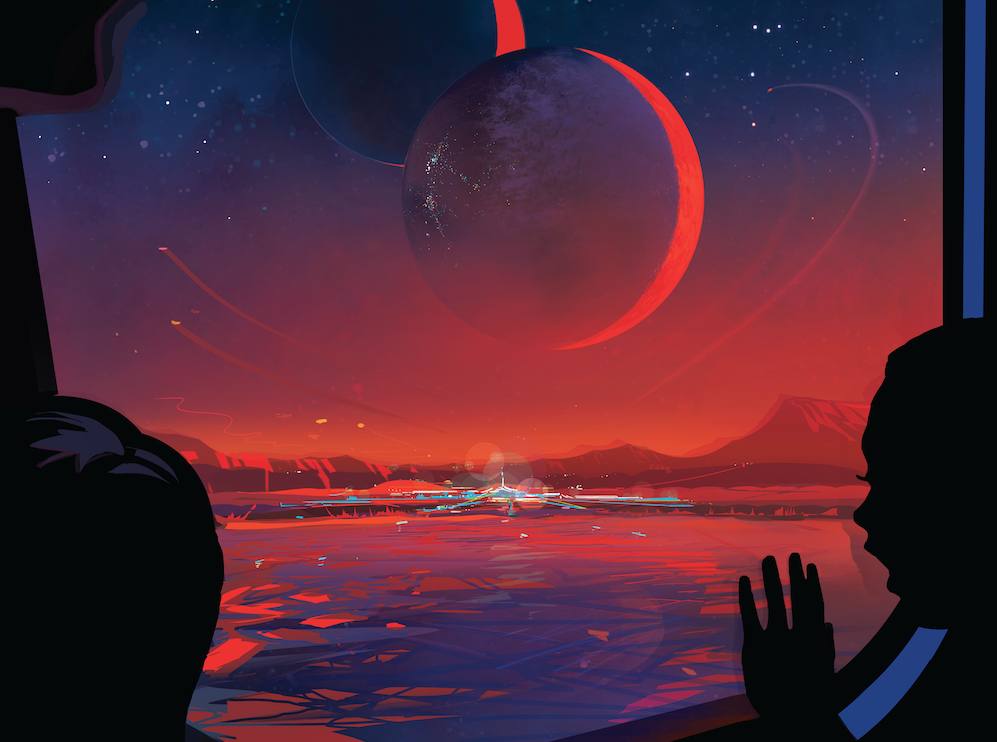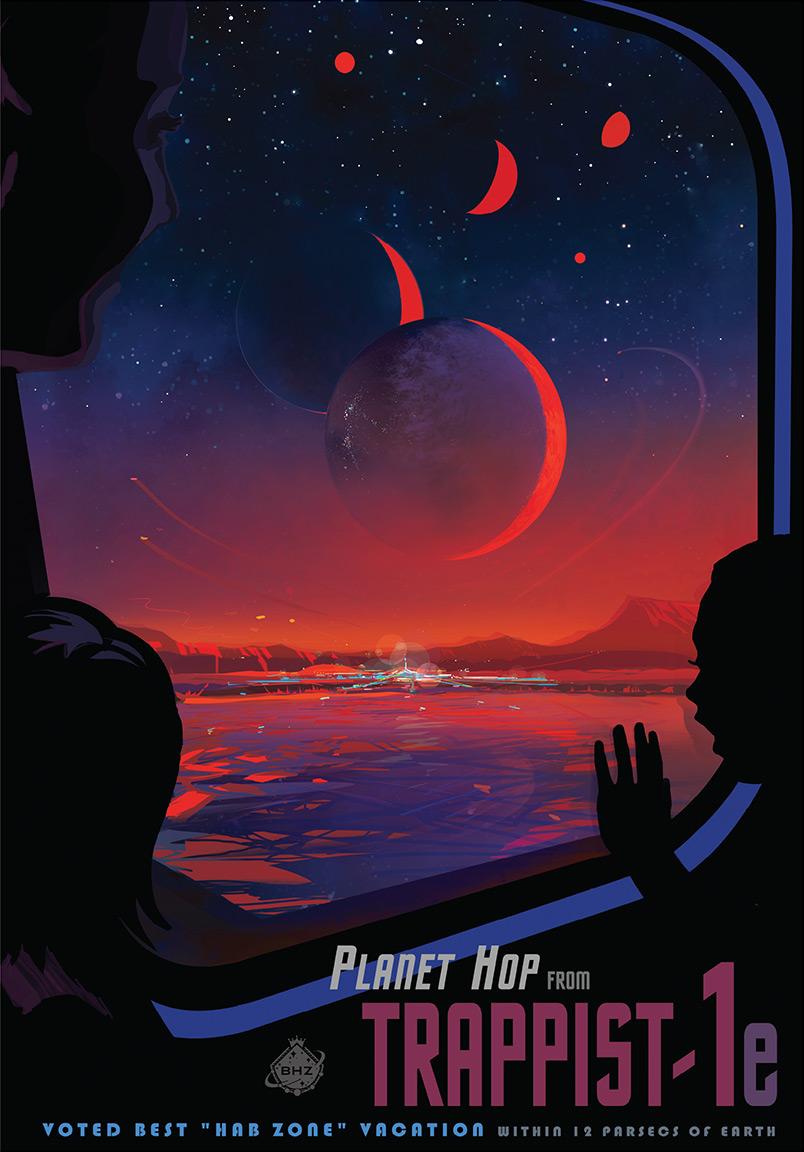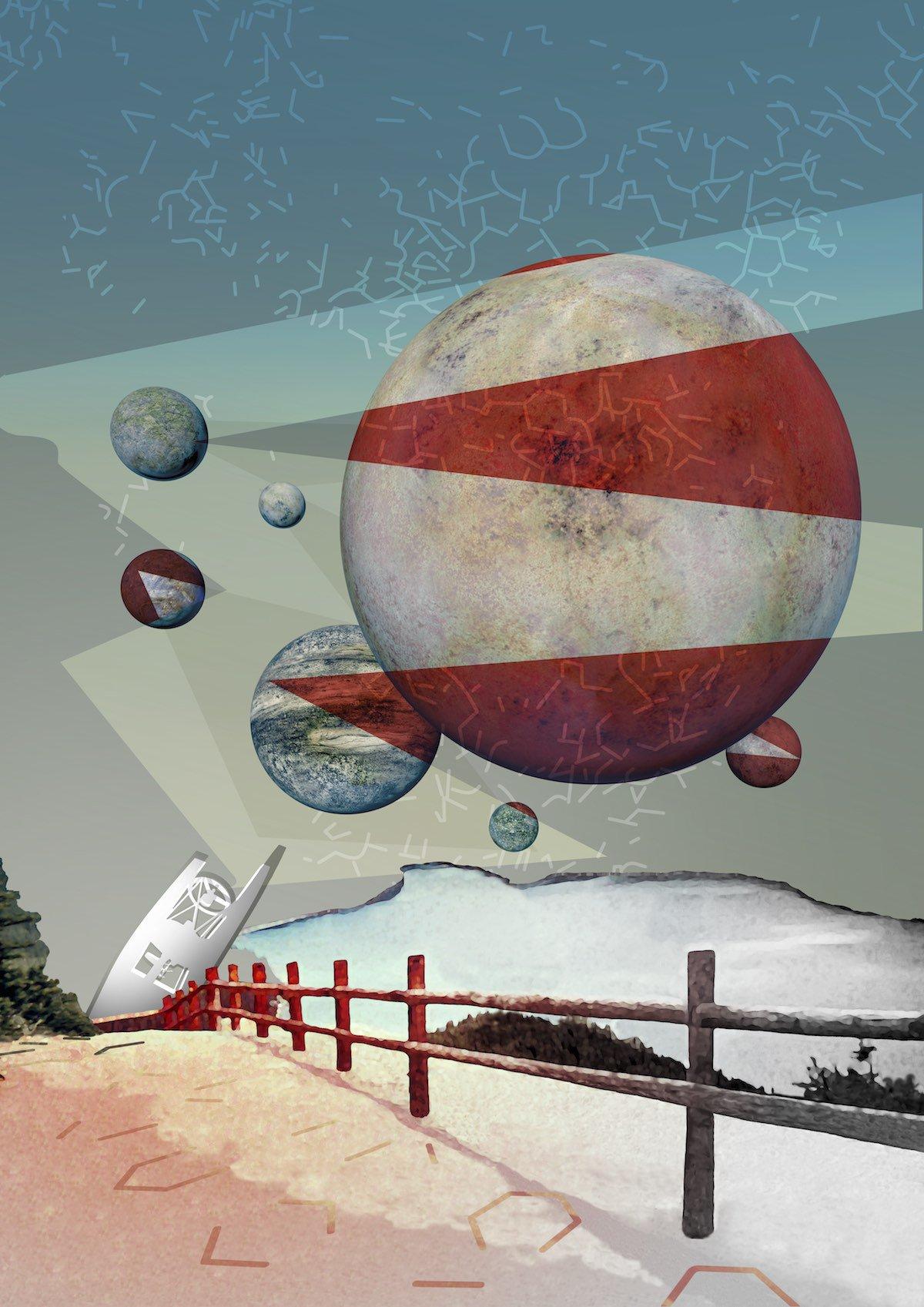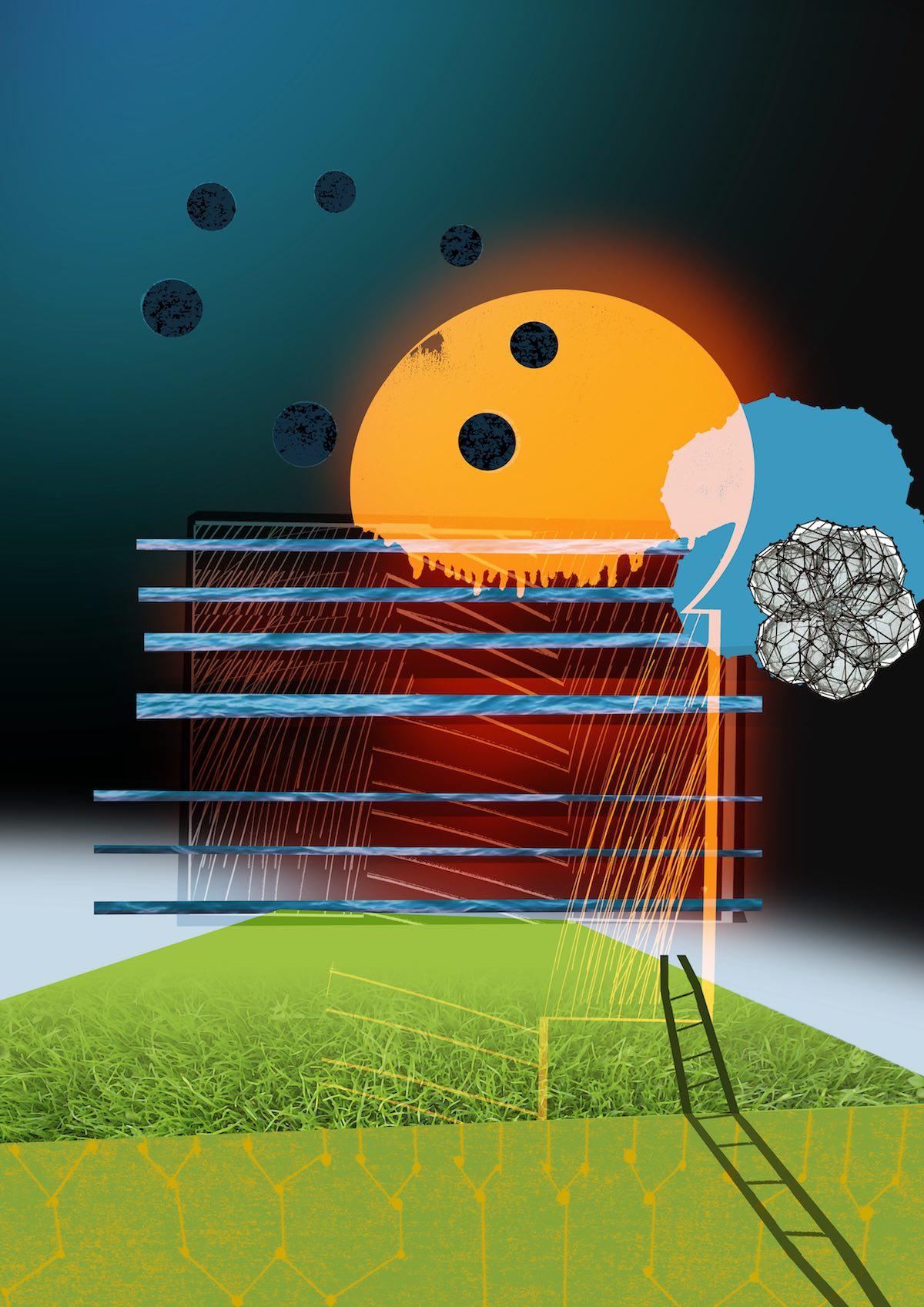Exoplanet discovery: Nasa designs beautiful posters advertising life in newly discovered solar system
The planets offer 'a heart-stopping view: brilliant objects in a red sky, looming like larger and smaller versions of our own moon. But these are no moons'

Your support helps us to tell the story
From reproductive rights to climate change to Big Tech, The Independent is on the ground when the story is developing. Whether it's investigating the financials of Elon Musk's pro-Trump PAC or producing our latest documentary, 'The A Word', which shines a light on the American women fighting for reproductive rights, we know how important it is to parse out the facts from the messaging.
At such a critical moment in US history, we need reporters on the ground. Your donation allows us to keep sending journalists to speak to both sides of the story.
The Independent is trusted by Americans across the entire political spectrum. And unlike many other quality news outlets, we choose not to lock Americans out of our reporting and analysis with paywalls. We believe quality journalism should be available to everyone, paid for by those who can afford it.
Your support makes all the difference.Nasa has just found an entire new solar system that could support aliens. And life there sounds nice.
Researchers working with the agency revealed that it had found its "holy grail": a solar system filled with seven Earth-like planets, many of which might support life. And it's just a mere 40 lightyears away.
To celebrate the discovery – perhaps its biggest exoplanet find ever – the agency has made stunning a poster advertising life on the planet. We're not going to be able to get there anytime soon – the fastest spacecraft humanity has made would take 200,000 years to get there – but it offers a stunning glimpse of what it might be like to live there, or what life might be like for any aliens that already do.

The agency also provided the kind of description that might be offered to any astronauts who head to the travel agents to book a trip to the new planet.
"Some 40 light-years from Earth, a planet called TRAPPIST-1e offers a heart-stopping view: brilliant objects in a red sky, looming like larger and smaller versions of our own moon. But these are no moons. They are other Earth-sized planets in a spectacular planetary system outside our own. These seven rocky worlds huddle around their small, dim, red star, like a family around a campfire.
"Any of them could harbor liquid water, but the planet shown here, fourth from the TRAPPIST-1 star, is in the habitable zone, the area around the star where liquid water is most likely to be detected. This system was revealed by the TRansiting Planets and PlanetIsmals Small Telescope (TRAPPIST) and NASA's Spitzer Space Telescope. The planets are also excellent targets for NASA's James Webb Space Telescope. Take a planet-hopping excursion through the TRAPPIST-1 system."
As well as its retro travel posters, Nasa released a range of more abstracted, artistic depictions inspired by the new solar system and drawn by Amanda J Smith.


TRAPPIST-1e is the fifth planet along in the solar system, which includes at least seven planets in all.
It's far from the first planet to be commemorated with its own travel poster. Nasa has commissioned a range of retro-style posters that give a glimpse of what life might be like if we ever manage to move home onto another world.
Join our commenting forum
Join thought-provoking conversations, follow other Independent readers and see their replies
Comments